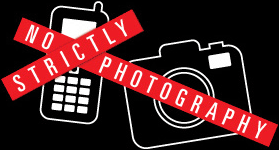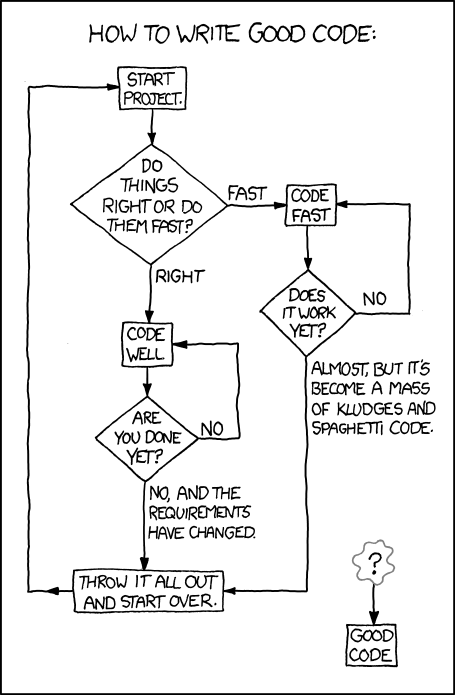English Corner
https://goo.gl/NdCP4
"The Montana State Library (MSL) has just completed moving 3,070 born-digital state publications from OCLC’s CONTENTdm to the Internet Archive. "
"The Montana State Library (MSL) has just completed moving 3,070 born-digital state publications from OCLC’s CONTENTdm to the Internet Archive. "
KlausGraf - am Montag, 17. Januar 2011, 01:39 - Rubrik: English Corner
noch kein Kommentar - Kommentar verfassen
https://www.mediapost.com/publications/?fa=Articles.showArticle&art_aid=142788
The World Erotic Art Museum in Miami has sued photographer Thomas Hawk for $2 million for posting some pictures he took of the museum's art to his Flickr account
More in the Google Cache https://goo.gl/VCRWY
Photo-sharing for pictures taken where you are not allowed to take them:
https://www.strictlynophotography.com/index.php

The World Erotic Art Museum in Miami has sued photographer Thomas Hawk for $2 million for posting some pictures he took of the museum's art to his Flickr account
More in the Google Cache https://goo.gl/VCRWY
Photo-sharing for pictures taken where you are not allowed to take them:
https://www.strictlynophotography.com/index.php

KlausGraf - am Donnerstag, 13. Januar 2011, 16:55 - Rubrik: English Corner
noch kein Kommentar - Kommentar verfassen
https://www.bbc.co.uk/news/technology-12181154
The presidential library commemorating the life of US President John F Kennedy is digitising every scrap of paper, video, audio and artefact it possesses.
Update: The Digital Archives are online at
https://www.jfklibrary.org/Research/Search-the-Digital-Archives.aspx
The presidential library commemorating the life of US President John F Kennedy is digitising every scrap of paper, video, audio and artefact it possesses.
Update: The Digital Archives are online at
https://www.jfklibrary.org/Research/Search-the-Digital-Archives.aspx
KlausGraf - am Donnerstag, 13. Januar 2011, 16:50 - Rubrik: English Corner
noch kein Kommentar - Kommentar verfassen
KlausGraf - am Freitag, 7. Januar 2011, 20:12 - Rubrik: English Corner
noch kein Kommentar - Kommentar verfassen
Please join the Archivists Round Table of Metropolitan New York and the Metro NYC Chapter of ARMA for a provocative discussion of our professional perspectives on WikiLeaks and the ramifications for the archives and records profession.
Do WikiLeaks and its complex, attendant issues shift our conceptualization of our roles as information professionals? How might WikiLeaks change the public’s views on usage of and access to archives and records? To what extent is the most recent release of diplomatic cables a product of information mismanagement?
Addressing these and many more questions, our confirmed speakers include Trudy Peterson, former Acting Archivist of the United States (1993-1995) and current representative for the Society of American Archivists on the Department of State’s Historical Advisory Committee; Fred Pulzello, Solutions Architect in the Information Governance practice at MicroLink LLC; Jim Fortmuller, Manager of Systems Security at Kelley Drye & Warren LLP in Washington, DC; Mark Matienzo, Digital Archivist in Manuscripts and Archives at Yale University Library; and Derek Bambauer, Associate Professor of Law at Brooklyn Law School. The panel will be moderated by Peter Wosh, Director of the Archives/Public History Program and Clinical Associate Professor of History at New York University.
Date: Tuesday, January 25, 2011
Place: Center for Jewish History
https://www.nycarchivists.org/?p=672
Update:
Video
https://www.cjh.org/pages.php?pid=45&evID=1791
Do WikiLeaks and its complex, attendant issues shift our conceptualization of our roles as information professionals? How might WikiLeaks change the public’s views on usage of and access to archives and records? To what extent is the most recent release of diplomatic cables a product of information mismanagement?
Addressing these and many more questions, our confirmed speakers include Trudy Peterson, former Acting Archivist of the United States (1993-1995) and current representative for the Society of American Archivists on the Department of State’s Historical Advisory Committee; Fred Pulzello, Solutions Architect in the Information Governance practice at MicroLink LLC; Jim Fortmuller, Manager of Systems Security at Kelley Drye & Warren LLP in Washington, DC; Mark Matienzo, Digital Archivist in Manuscripts and Archives at Yale University Library; and Derek Bambauer, Associate Professor of Law at Brooklyn Law School. The panel will be moderated by Peter Wosh, Director of the Archives/Public History Program and Clinical Associate Professor of History at New York University.
Date: Tuesday, January 25, 2011
Place: Center for Jewish History
https://www.nycarchivists.org/?p=672
Update:
Video
https://www.cjh.org/pages.php?pid=45&evID=1791
KlausGraf - am Freitag, 7. Januar 2011, 15:29 - Rubrik: English Corner
noch kein Kommentar - Kommentar verfassen
https://wowter.net/2011/01/06/the-impact-factor-of-open-access-journals/
Download the list of 619 OA journals with impact factors at https://goo.gl/ONfBL
Download the list of 619 OA journals with impact factors at https://goo.gl/ONfBL
KlausGraf - am Donnerstag, 6. Januar 2011, 19:54 - Rubrik: English Corner
noch kein Kommentar - Kommentar verfassen
A former Drew University student pleaded guilty this week to stealing valuable historical documents from the university's United Methodist Archives Center while working there as a paid student assistant.
https://www.dailyrecord.com/article/20110105/UPDATES01/301050013/Drew-University-student-admits-stealing-historic-documents-from-school
https://www.dailyrecord.com/article/20110105/UPDATES01/301050013/Drew-University-student-admits-stealing-historic-documents-from-school
KlausGraf - am Donnerstag, 6. Januar 2011, 19:49 - Rubrik: English Corner
noch kein Kommentar - Kommentar verfassen
https://www.hathitrust.org
Most Google-digitized scans in Hathitrust are also available in Google, but a lot of European publications published after 1909 and before 1923 isn't in Google as fulltext while HathiTrust is offering access for US-citizen. There are also books before 1909 which are not in Google e.g.
https://babel.hathitrust.org/cgi/pt?id=nyp.33433066646872
You can browse these books from outside the US by using an US proxy. (PDF-Download is limited to one page for not-affiliates of a HathiTrust partner institution.)
1. First choose a proxy
See e.g. the list at
https://de.wikisource.org/wiki/Gbs#Liste_aktueller_Web-Anonymizer
2. Go to the proxy URL
E.g. https://uethelp.us/
3. Enter the HatiTrust URL
4. Read!
See the screencast https://screenr.com/Uxt
or at https://www.youtube.com/watch?v=Jc5_QE1Gi_I
Most Google-digitized scans in Hathitrust are also available in Google, but a lot of European publications published after 1909 and before 1923 isn't in Google as fulltext while HathiTrust is offering access for US-citizen. There are also books before 1909 which are not in Google e.g.
https://babel.hathitrust.org/cgi/pt?id=nyp.33433066646872
You can browse these books from outside the US by using an US proxy. (PDF-Download is limited to one page for not-affiliates of a HathiTrust partner institution.)
1. First choose a proxy
See e.g. the list at
https://de.wikisource.org/wiki/Gbs#Liste_aktueller_Web-Anonymizer
2. Go to the proxy URL
E.g. https://uethelp.us/
3. Enter the HatiTrust URL
4. Read!
See the screencast https://screenr.com/Uxt
or at https://www.youtube.com/watch?v=Jc5_QE1Gi_I
KlausGraf - am Montag, 3. Januar 2011, 22:09 - Rubrik: English Corner
KlausGraf - am Montag, 3. Januar 2011, 18:53 - Rubrik: English Corner
noch kein Kommentar - Kommentar verfassen
https://pressroom.earlham.edu/blogs/the-observatory/2010/12/copyright-struggles-providing-access-vs-protecting-rights
What colleges and universities should want, most of the time, is to expand access to the materials they hold: archival materials, research studies and the like. The colleges and universities might like a little income to offset the cost of proving that access, but there is very little possibility (or risk) that anyone will or could make a great deal of money off the access provided. The central issue is access, not income; it is expanding use, not protecting rights.
What colleges and universities should want, most of the time, is to expand access to the materials they hold: archival materials, research studies and the like. The colleges and universities might like a little income to offset the cost of proving that access, but there is very little possibility (or risk) that anyone will or could make a great deal of money off the access provided. The central issue is access, not income; it is expanding use, not protecting rights.
KlausGraf - am Montag, 27. Dezember 2010, 22:55 - Rubrik: English Corner
noch kein Kommentar - Kommentar verfassen
